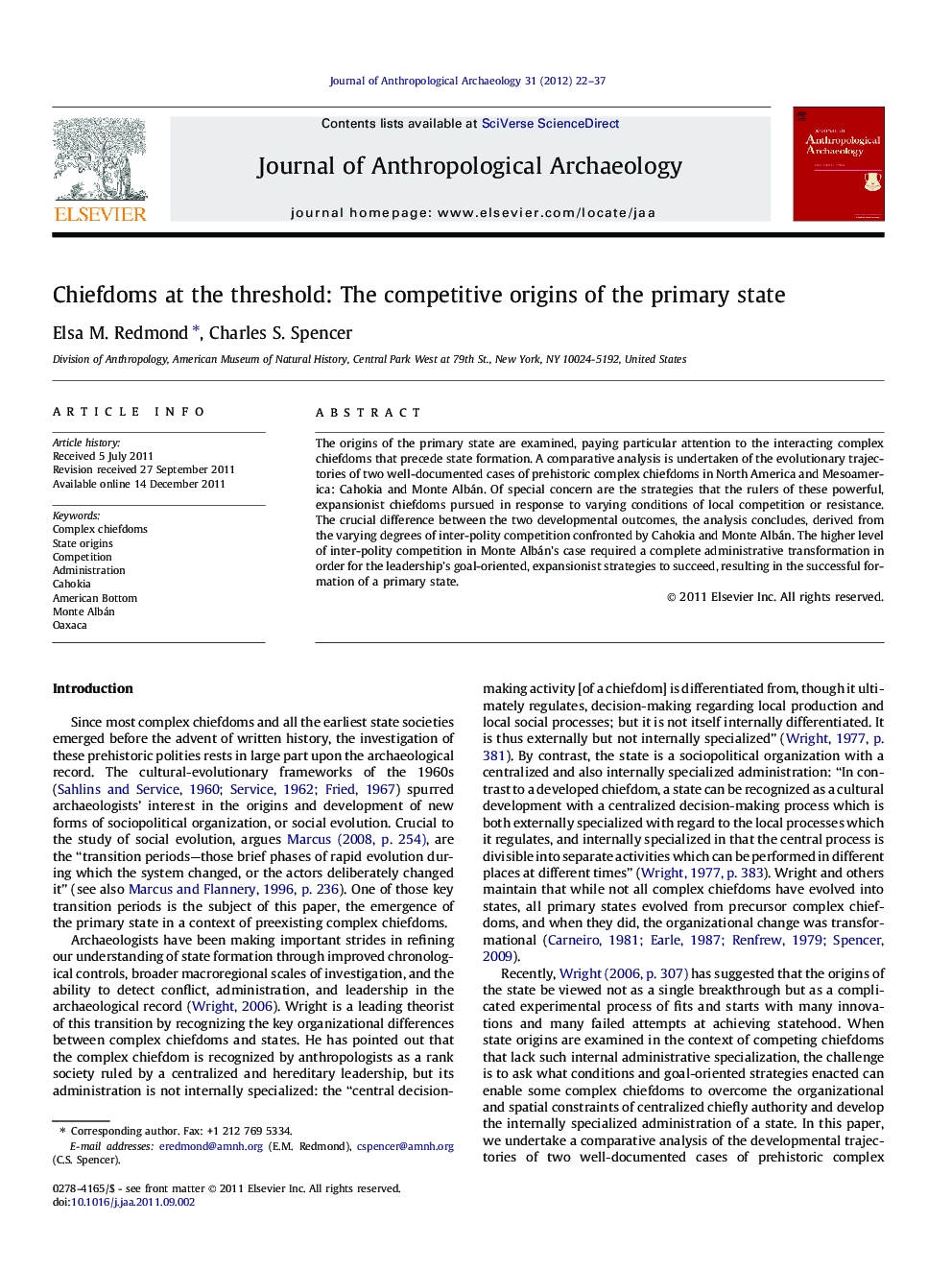| Article ID | Journal | Published Year | Pages | File Type |
|---|---|---|---|---|
| 1035008 | Journal of Anthropological Archaeology | 2012 | 16 Pages |
The origins of the primary state are examined, paying particular attention to the interacting complex chiefdoms that precede state formation. A comparative analysis is undertaken of the evolutionary trajectories of two well-documented cases of prehistoric complex chiefdoms in North America and Mesoamerica: Cahokia and Monte Albán. Of special concern are the strategies that the rulers of these powerful, expansionist chiefdoms pursued in response to varying conditions of local competition or resistance. The crucial difference between the two developmental outcomes, the analysis concludes, derived from the varying degrees of inter-polity competition confronted by Cahokia and Monte Albán. The higher level of inter-polity competition in Monte Albán’s case required a complete administrative transformation in order for the leadership’s goal-oriented, expansionist strategies to succeed, resulting in the successful formation of a primary state.
